News ·
Protecting oceans the Palauan way
How a small island country in the Pacific is taking the lead on climate impacts to protect its land, sea and wildlife.
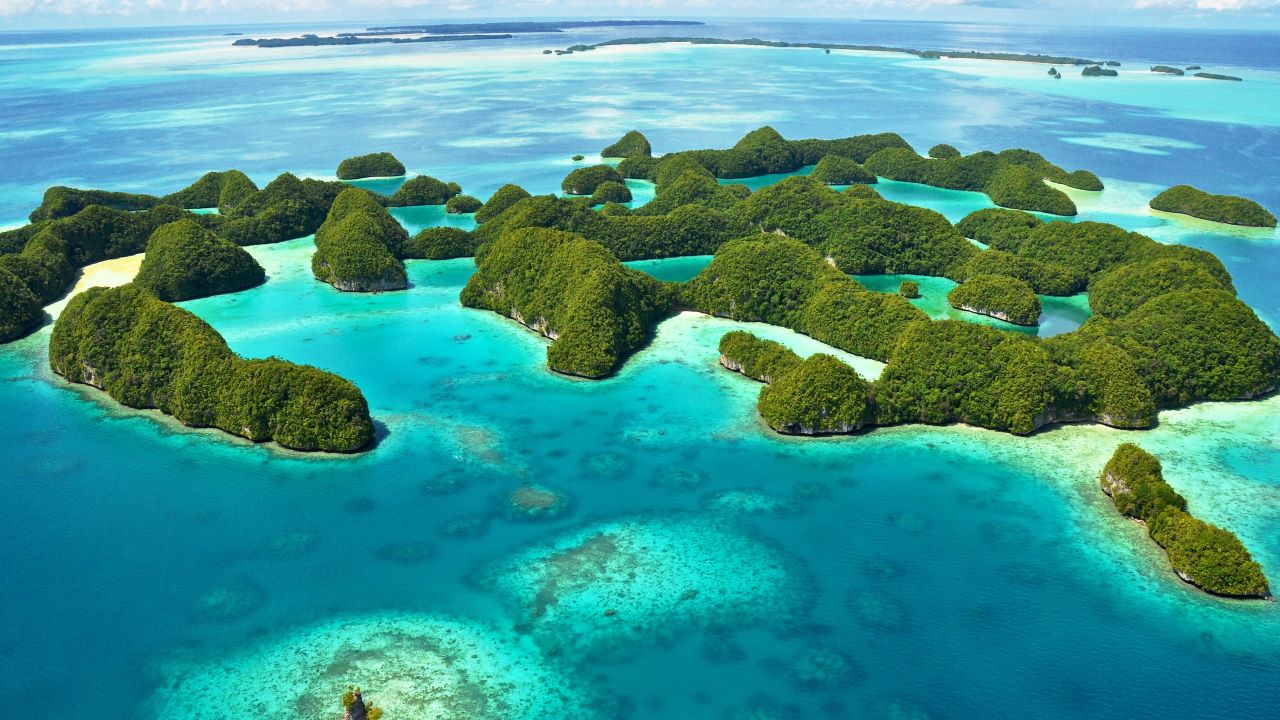
North of Australia, in the western Pacific Ocean, you’ll find a chain of over 500 small islands that make up the Republic of Palau. Among these islands is the World Heritage-listed Rock Islands Southern Lagoon made up of over 300 limestone islands of incredible beauty – their only inhabitants are the plants, birds and marine life that call them home. The reef here supports an incredible diversity of wildlife including the endangered hawksbill turtle and the gentle giant of the sea, the Napoleon wrasse.
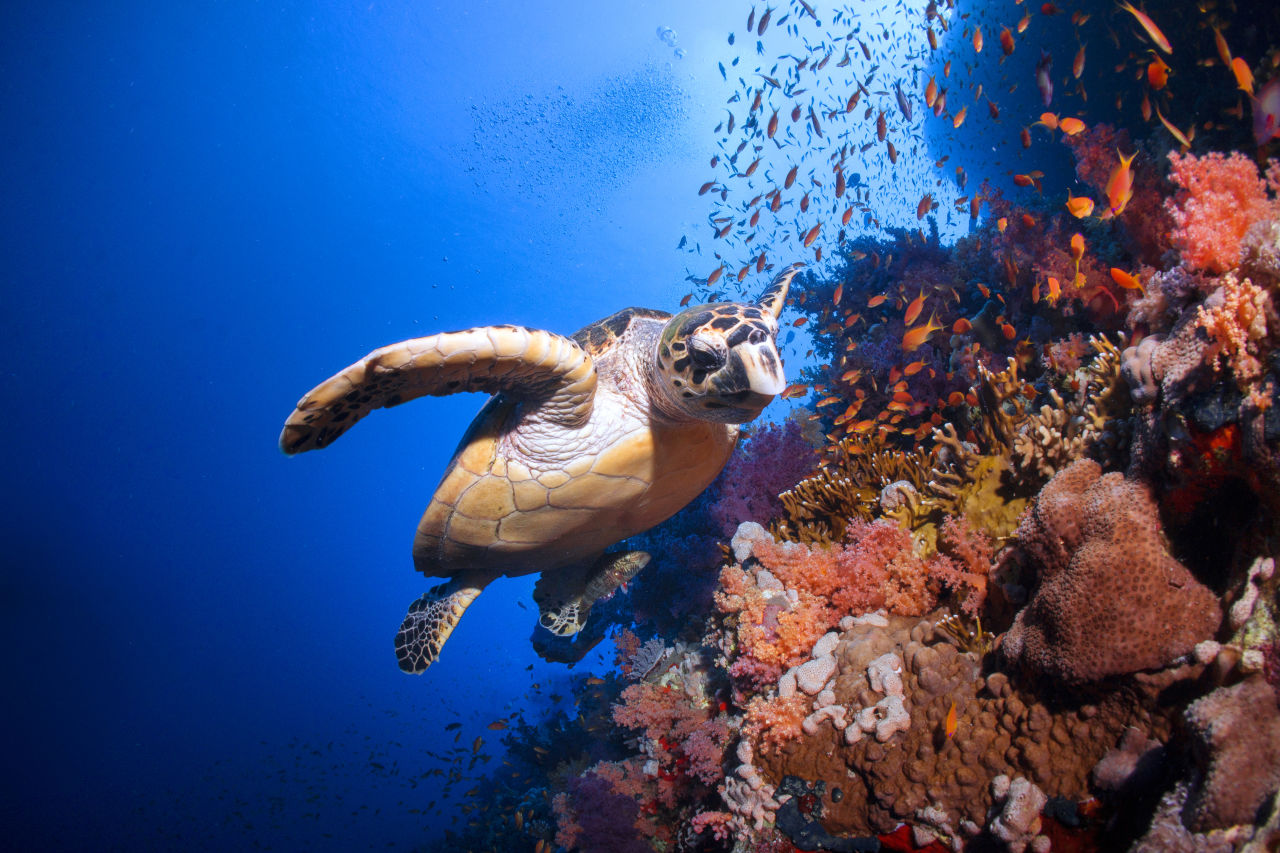
The endangered hawksbill turtle. Credit: Cinzia Osele Bismarck, Ocean Image Bank.
A leader in marine conservation
Palau’s World Heritage-listed Rock Islands Southern Lagoon is one of the pilot sites of our Resilient Reefs Initiative – a global climate change program helping reefs and communities adapt to the impacts of climate change and local threats. Palau provides us with a unique opportunity to learn from its rich ties to cultural and traditional knowledge and its progressive leaders who have worked tirelessly to conserve the environment while continuing to provide communities with access to natural resources.
This island state is a fierce advocate for ocean conservation and climate justice. Tourists pay a US$100 green fee on entering Palau and sign a pledge written by the children of Palau to “tread lightly, act kindly, and explore mindfully”.
Palau is also the only nation on Earth to have protected 80% of its offshore marine environment. In 2009, Palau prohibited shark fishing across an area of around 600,000 square kilometres. In doing so, it created the world’s first national shark sanctuary, providing a safe haven for sharks to feed, rest and reproduce.
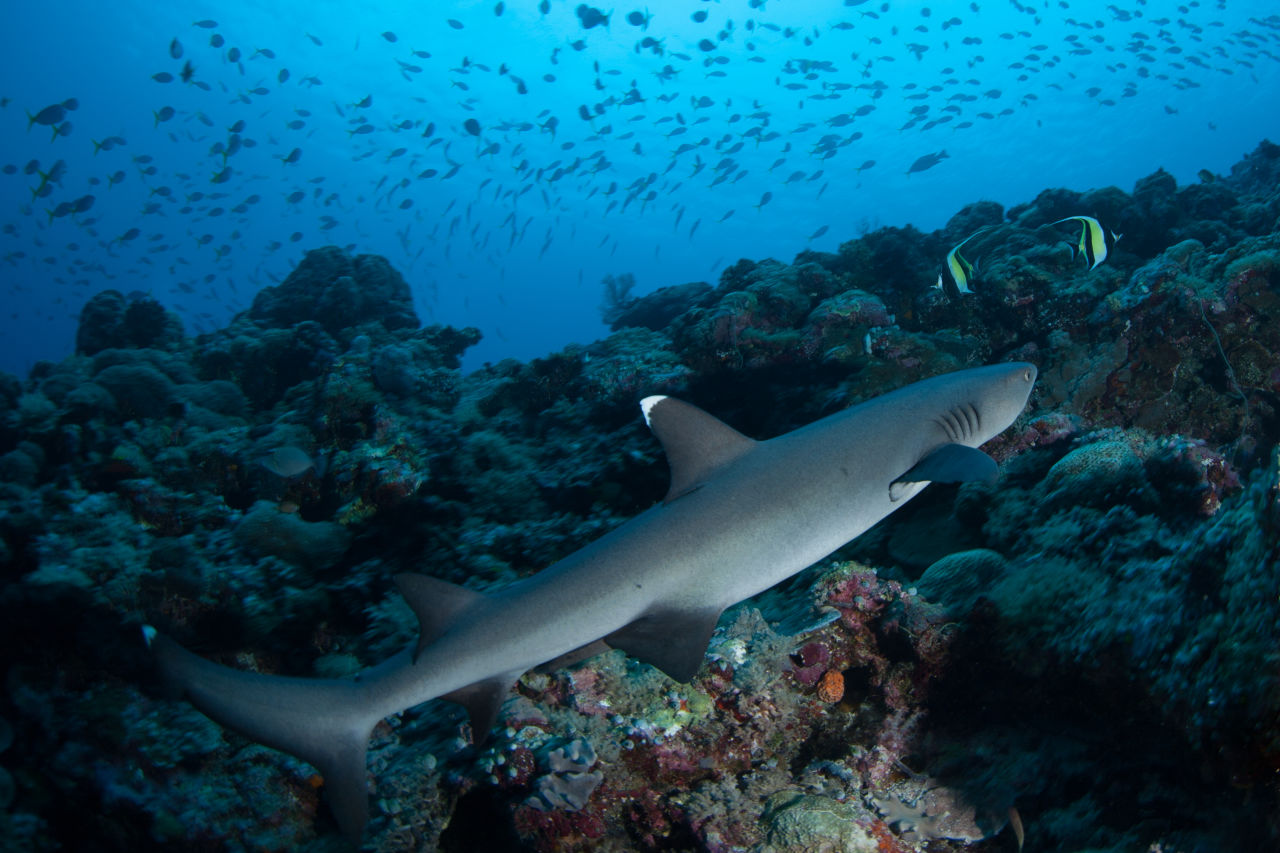
A whitetip reef shark cruises the coral reef in Palau.
Climate pressures and local threats remain
There is so much to be learned from Palau’s progressive approach, but this island nation remains at the frontline of climate change. Declines in seagrass coverage, coral bleaching events and over-fishing in inshore areas are threatening the local ecosystem.
There is also a need to rebuild the economy after COVID and find ways to alleviate pressure on the environment by diversifying the livelihoods of a nation largely reliant on tourism and fishing for income.
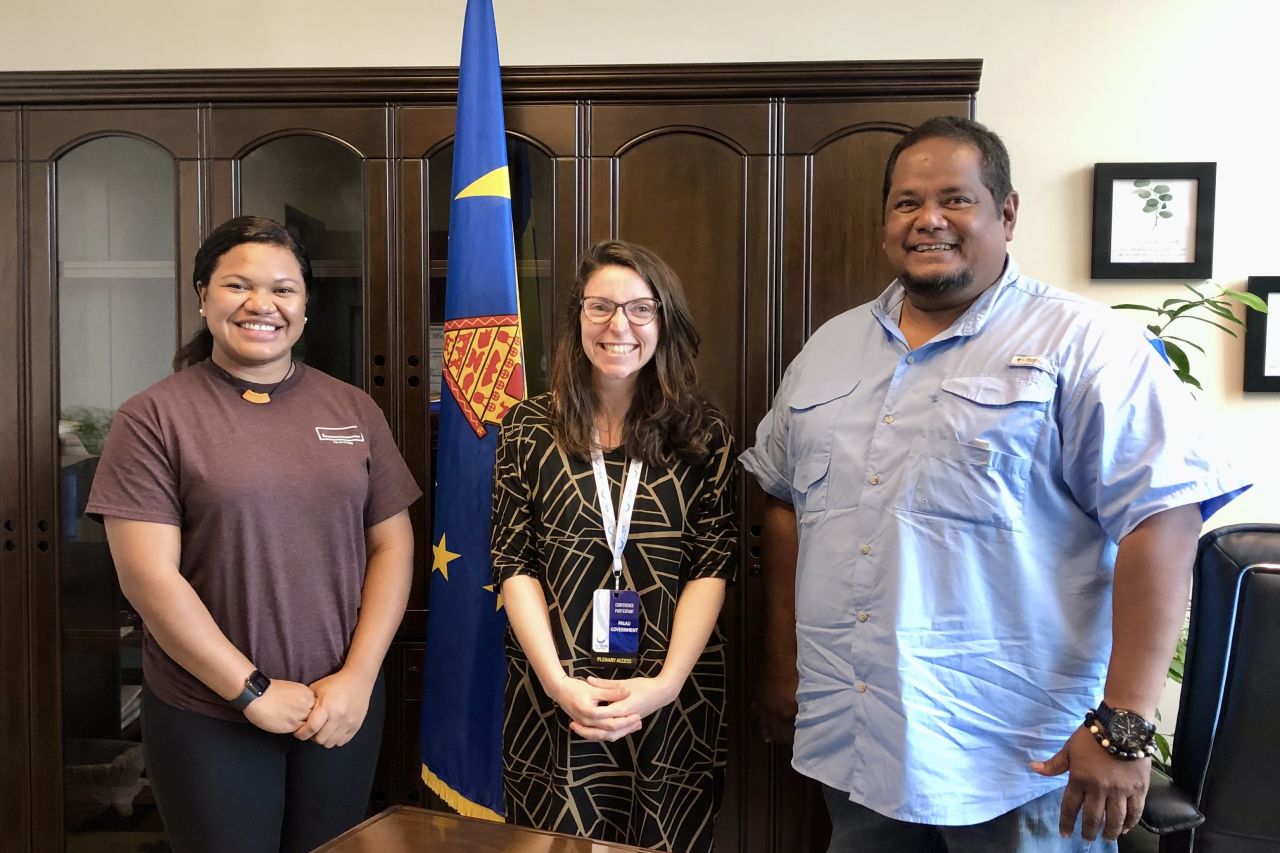
Chief Resilience Officer Andrea Uchel, Resilient Reefs Initiative Director Amy Armstrong and Governor Eyos Rudimch in Palau.
Protecting cultural values
Palau, like so many island nations, is facing the challenge of how to manage declining fish stocks in a way that ensures local communities keep their cultural ties and access to fish – the main source of protein in the Palauan diet.
To support this, we funded a partnership between the Palau International Coral Reef Center, the Palau Conservation Society and the Koror State Government. This partnership is working with the local fishing community to support new approaches to protect declining fish stocks based on traditional knowledge and practices. The partnership is also delivering training for the rangers and conservation officers at Koror State who will be key to implementing the Fisheries Management Plan, ecological monitoring and ensuring that traditional fishing laws and practices are respected and complied with.
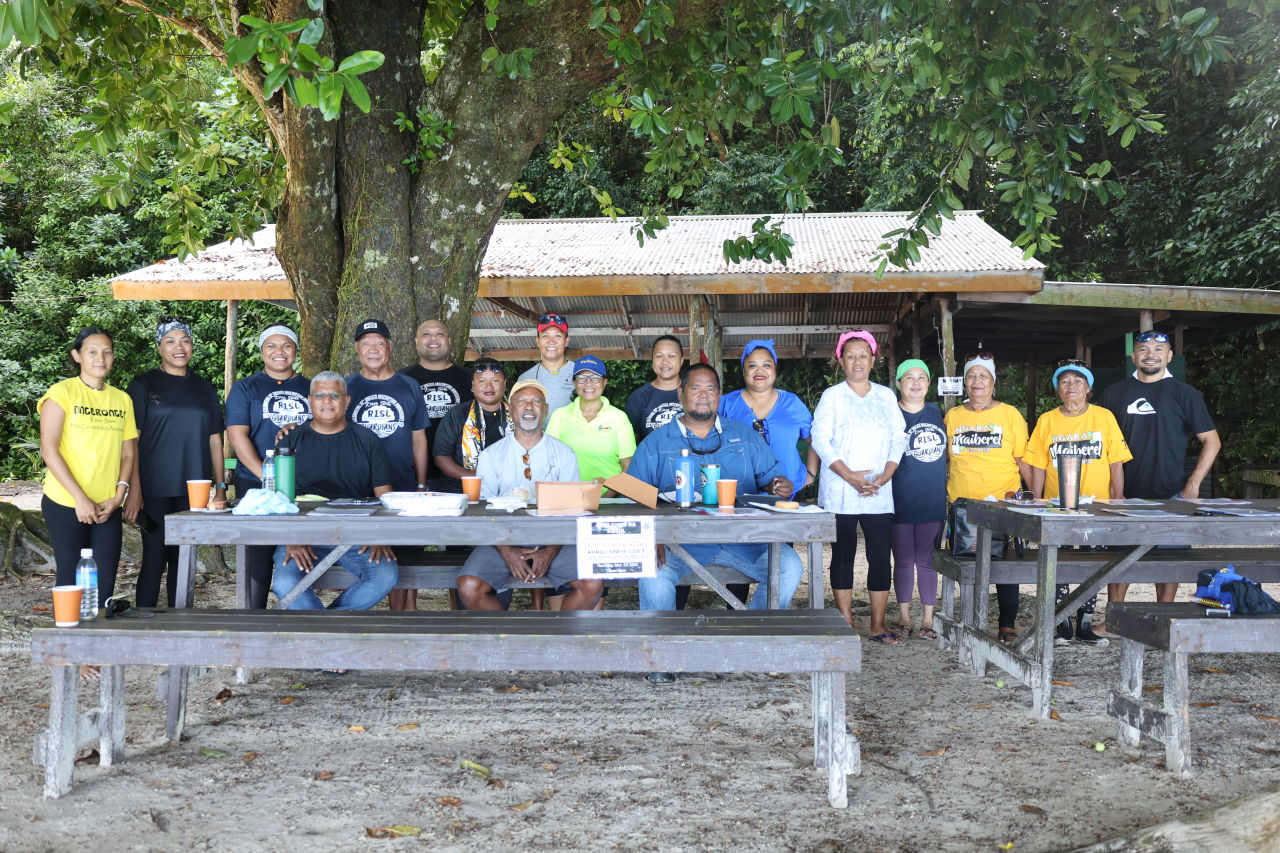
The Palau Steering Committee meet in Euidelcholl, March 2023. Credit: Bibbie Kumangai.
Building resilience
Through the Resilient Reefs Initiative, we’re also funding two critical roles as part of our work to support Palau to develop its resilience to climate change and local threats. Andrea Uchel has been appointed Chief Resilience Officer at Koror State Government, while Lolita Gibbons-Decherong has been named Resilience Advisor at Palau Conservation Society.
Over the coming months, we’ll continue to work with our partners in Palau to develop a Resilience Strategy as well as co-designing and funding projects to help Palauans map a path forward – finding a way to support a thriving future for Palauans, while honouring their past.
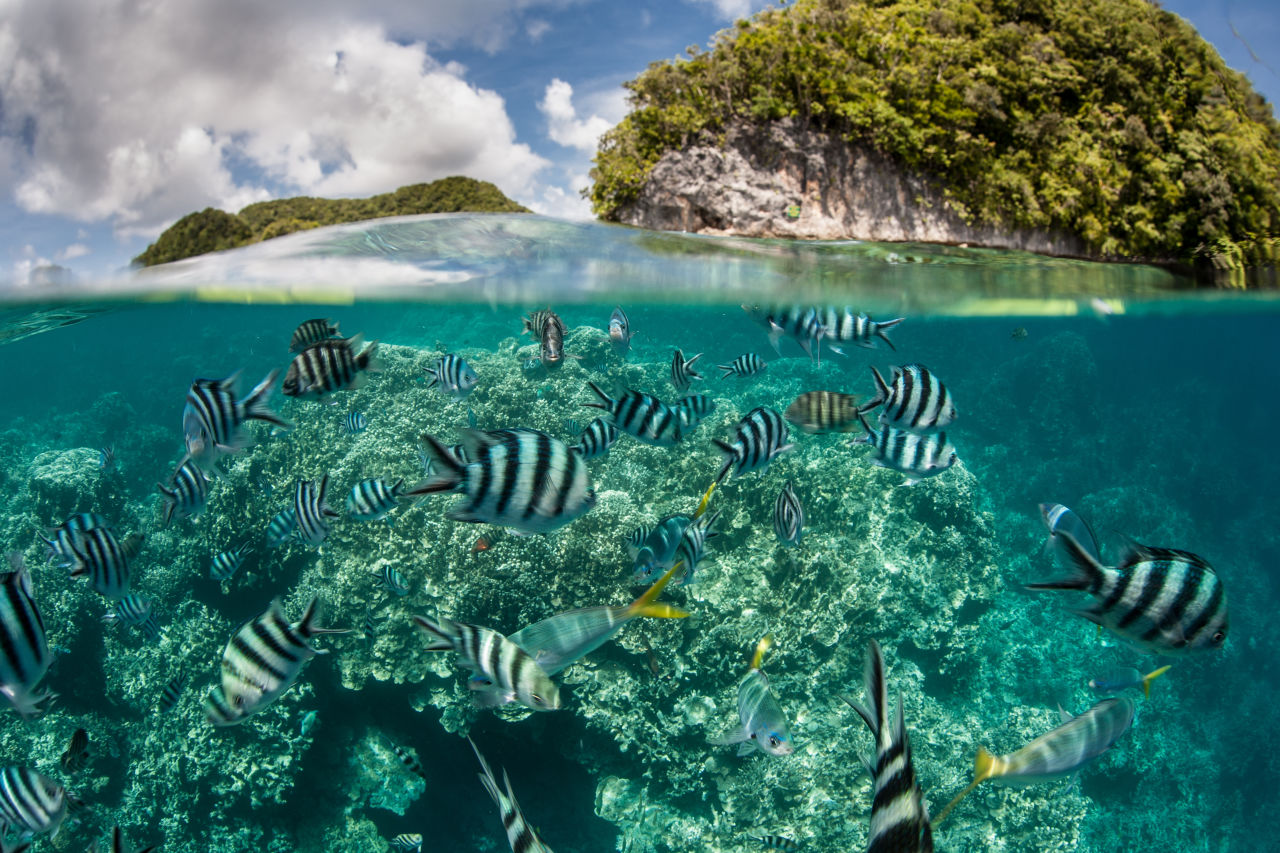
Damselfish swimming in the shallow water around Palau's Rock Islands.
Initiated by the Great Barrier Reef Foundation, Resilient Reefs is a collaboration with The Nature Conservancy’s Reef Resilience Network, Columbia University’s Center for Resilient Cities and Landscapes, Resilient Cities Catalyst, UNESCO and AECOM. The program is enabled by the BHP Foundation. These global partners each bring unique expertise and support to the pilot sites, as well as help to share the lessons and learnings from the Initiative with Reef communities around the world.




